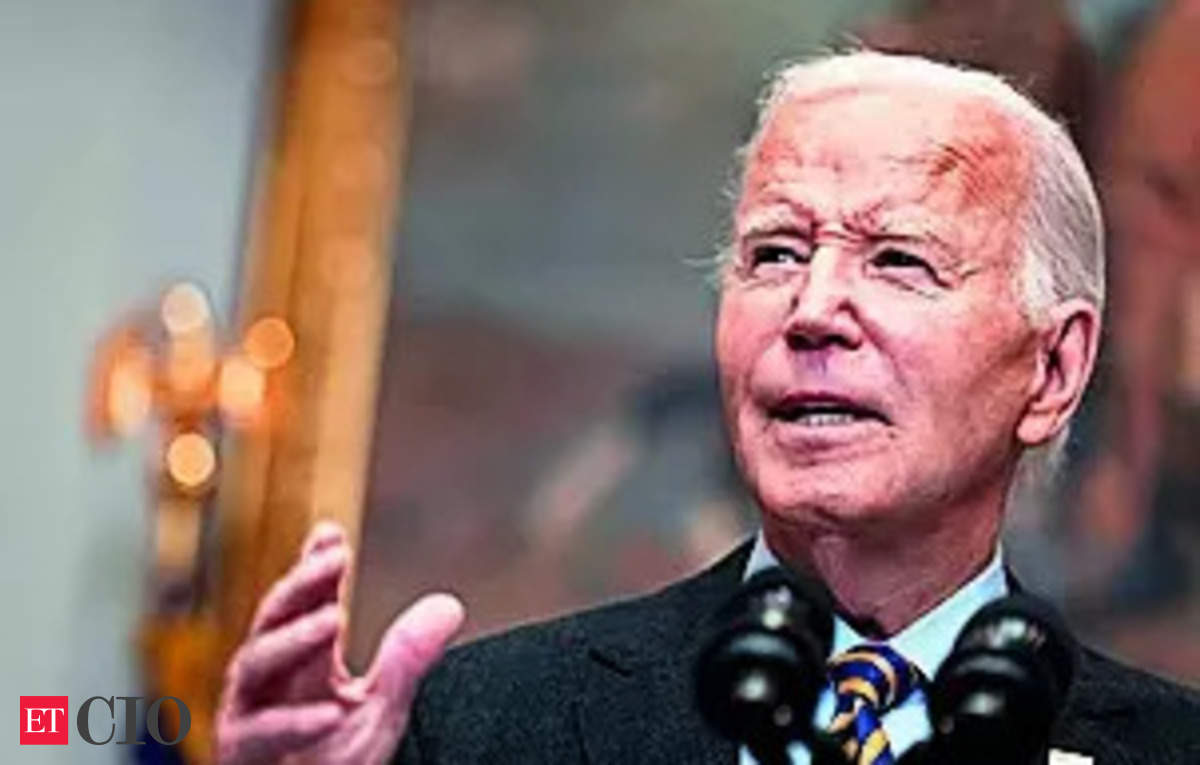US move on AI chips, data centres worries tech cos – ET CIO

The next big fight over offshoring is playing out in Washington, and this time it involves artificial intelligence. The Biden administration, in its final days in office, is rushing to issue new regulations to try to ensure that the United States and its close allies have control over how artificial intelligence develops in the years to come.
The rules have touched off an intense fight between tech companies and the govt, as well as among administration officials.
The regulations would dictate where American-made chips that are critical for AI could be shipped. Those rules would then help determine where the data centres that create AI would be built, with a preference for the United States and its allies.
The rules would allow most European countries, Japan and other close US allies to make unfettered purchases of AI chips, while blocking two dozen adversaries, including China and Russia, from buying them. The regulations would also make it easier for AI chips to be sent to trusted American companies that run data centres, like Google and Microsoft, than to their foreign competitors.
The rules would establish security procedures that data centres would have to follow to keep AI systems safe from cybertheft.
The Biden administration’s plan has prompted swift pushback from American tech companies, which say global regulations could slow their businesses and create costly compliance requirements. Those firms also question whether President Joe Biden should be setting rules with such far-reaching economic consequences in his final days in office. While some of the details are unclear, the new rules may force tech companies that are pouring tens of billions of dollars into building data centres around the world to rethink some of those locations.
Peter Harrell, a former White House economic official and a fellow at the Carnegie Endowment for International Peace, said the US has a substantial edge in AI and the leverage to decide which countries could benefit from it.
California-based Nvidia, which controls 90% of the AI chip market, has lobbied against the rules in meetings with Congress and the White House, as have Microsoft, Oracle and other companies. They worry that the rules could hurt international sales.
Ned Finkle, Nvidia VP of global affairs, said the policy would hurt data centres around the world without improving national security and would “push the world to alternative technologies.”
“We would encourage President Biden to not preempt incoming president by enacting a policy that will only harm the US economy, and play into the hands of US adversaries.”
Microsoft and Oracle declined to comment. Biden officials have also clashed over the regulations. Commerce Secretary Gina Raimondo, who is more sympathetic to industry complaints and had concerns about how the Trump administration would carry out the rules, has been at odds with the White House and other agencies, according to three officials and others familiar with the discussions, who declined to be named to discuss private deliberations.
Some U.S. allies expressed concerns about the rules, officials said. And in a Dec. 19 letter to the Biden administration, bipartisan lawmakers on the Senate Commerce Committee criticized the restrictions as “draconian” and said they would “severely hinder the sale of U.S. technology abroad.”
After the White House decided to move forward, the Commerce Department pushed for additional changes to the rule, including increasing the number of chips that can be sold without a license and delaying the rule’s start for 120 days to allow the Trump administration to potentially make changes, two officials said.
It is unclear what Trump would do, although he has recently expressed support for having data centers built in the United States. His advisers include some China skeptics who are likely to favor tougher restrictions. Others, including the president’s son-in-law Jared Kushner, have business ties to countries in the Middle East that are likely to oppose any restrictions. nyt
Related
EU denies picking on US tech giants, says US also…
BRUSSELS (Reuters) - Europe's new tech rule aims to keep digital markets
H-1B Visa 2025: How and why US policy shift may…
Recent changes in US H-1B visa policies have sparked significant concern within the Indian IT professional community hoping to work in America. However, the a
Alibaba Group (BABA) Stock: Chinese Tech Giants Gain $439 Billion…
Chinese tech stocks have gained over 40% this year, adding $439 billion in valueChina’s “7 titans” are outperforming the US “Magnificent Seven” tech s
The Global Spread of Protectionist Policies That Squeeze American Tech…
An increasing number of countries in recent years have begun targeting America’s leading technology firms with policies touted as measures to promote fair com














